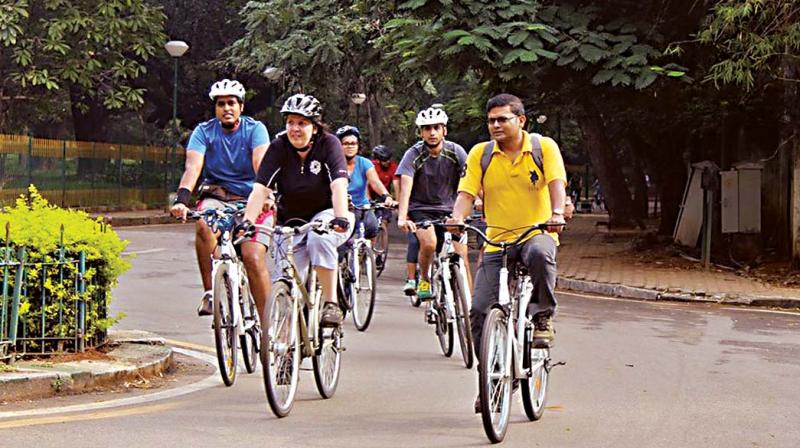Guest column: Why is the BBMP averse to constructing more tracks?

Measures like dedicated cycle lanes and the public bicycle sharing (PBS) system are good concepts to promote sustainable mobility in cities. Their success, however, depends on how well infrastructure measures complement policy and planning measures to influence mode choice behaviour so that more commuters in the city choose cycles over automobiles as a means of transport. Since cyclists are more prone to vehicular pollution, the project must work in tandem with other measures to ensure good implementation.
In other words, we need a pull-and-push strategy to bring about the right balance in the trip modal split. This will automatically reduce the distances covered by private automobiles, thereby reducing air pollution, which will in turn impact air pollution levels and benefit the cyclist.
It would make sense to start off with a pilot project, which can be scaled up to a level that meets end-to-end mobility needs, with cycling either as a main or access mode of commute. While the pilot is not a definitive indicator of success, it will pave the way for authorities who work on expanding and enforcing the project.
The BBMP is making excuses by saying they cannot build cycle tracks in certain areas because of trees. China has implemented this project to great success and Bengaluru can take a few tips from their model.
– Ashish Verma, Dept of Civil Engineering, IISc

